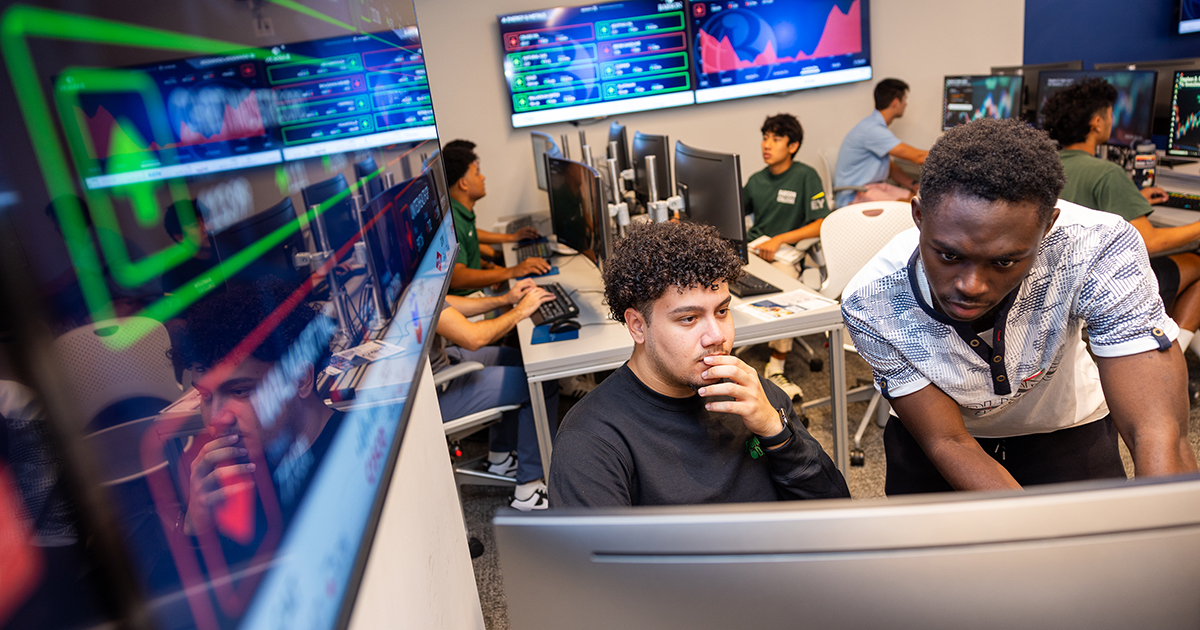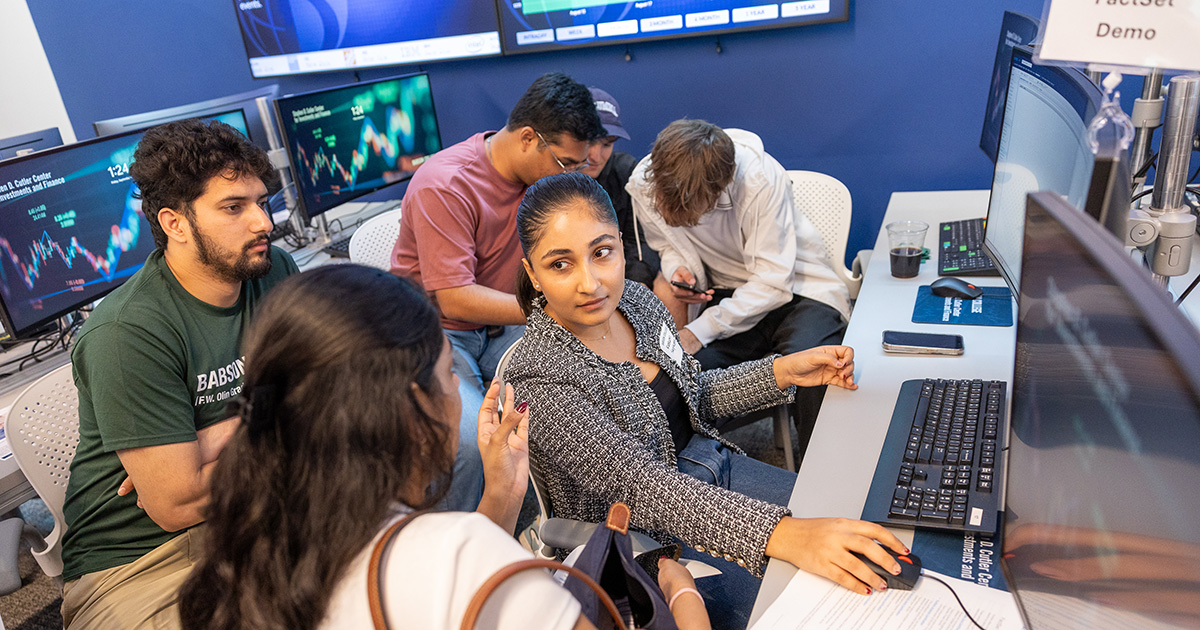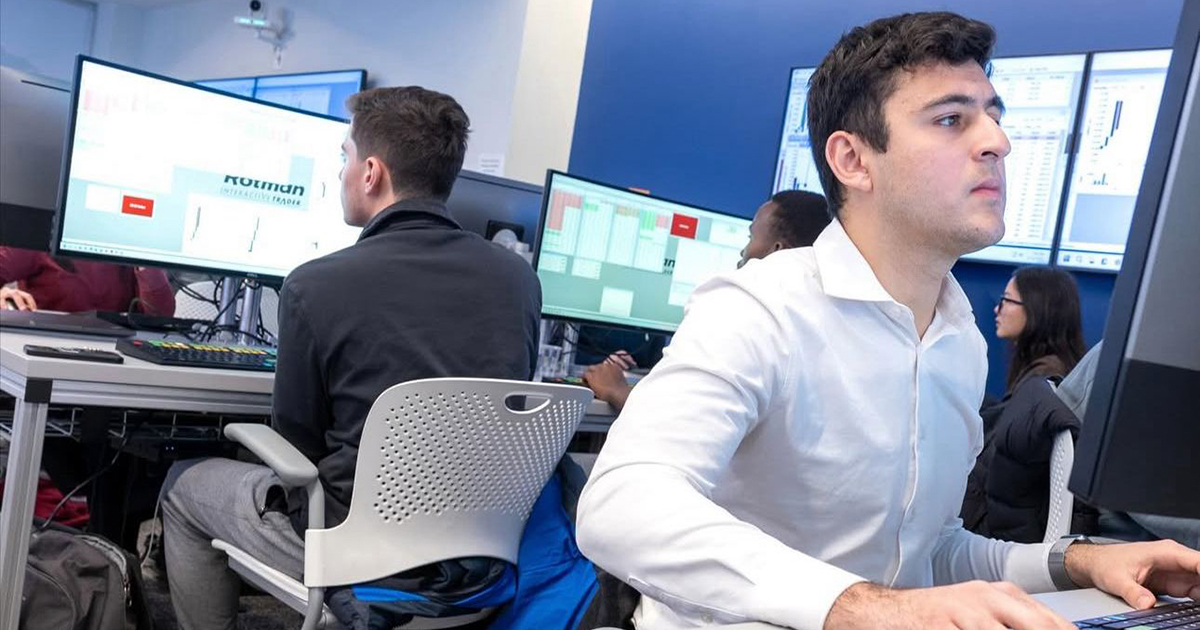The Turbulent Stock Market Becomes a Classroom for Student Investors

A 90-day reprieve from steep international tariffs has triggered another whiplash-inducing reversal of the stock market—and while investors applauded the recent surge, the nail-biting volatility that has plagued the market for the past three months has put many on edge.
The turbulent conditions have been a boon for one group, however, said Babson College finance professors Ryan Davies and Patrick Gregory—the young investors they oversee.
“Turbulent markets offer rare opportunities to buy high-quality stocks at attractive prices,” Gregory said. “Students can also selectively add to existing holdings they believe will weather the storm.”
Gregory, a professor of practice and the managing director of the Stephen D. Cutler Center for Investments and Finance, oversees both graduate and undergraduate students as the director of the Babson College Fund, a class where students oversee $6 million of Babson’s endowment fund.
Here, Gregory and Davies offer their advice—and the lessons learned—from navigating a volatile stock market.
Strategic Thinking
The strategy mirrored the one that students employed in 2020 during the COVID crisis. Back then, students outperformed the S&P 500 by over 1,000 basis points through disciplined research, long-term conviction, and well-timed trades. “That strategy paid off, and our students are applying similar methods now,” Gregory said.
The key, Gregory emphasized, is to stay focused on identifying undervalued companies with long-term upside potential.
“Students are working with teammates and mentors to close the gap and outperform by year-end,” he said.
Stay Focused
Davies said that while volatility presents opportunity, it also requires discipline.
“Babson College Fund managers should continue to follow the same process for finding value and opportunities within their assigned sectors,” he said.
That discipline becomes even more important if things get rockier.
“For the past 70 years, the world’s financial system has been based on having the U.S. dollar as the dominant reserve currency and U.S. government debt as being risk-free,” Davies said. “While unlikely, we would be entering uncharted territory if that system started to unravel.”
Lessons for New Investors
Both professors agree that newer investors—especially those contributing to 401(k) or 403(b) accounts for the first time—should use market turbulence as an opportunity to reassess, not retreat.
“Don’t overreact to short-term swings, but do re-evaluate your allocations to make sure they align with your time horizon and goals,” Davies advised. “Many target-date funds do this automatically, but it’s still smart to understand what you own.”
Gregory added that long-term thinking and quality stock selection tend to win out over time.
“Trying to time the market rarely works,” he said. “Focus on fundamentals, be patient, and learn from every market cycle.”
Posted in Insights




